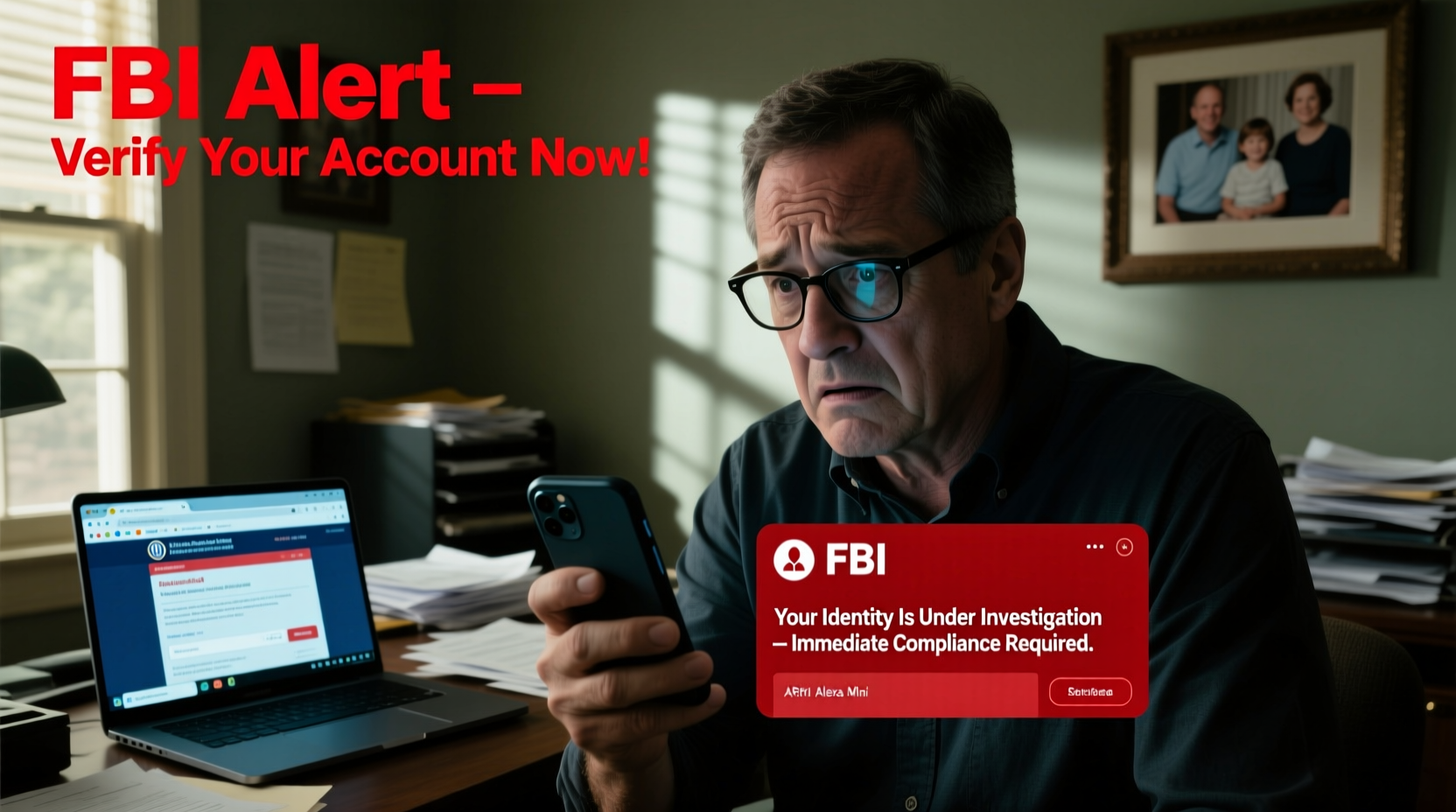You pick up your phone to see an unknown number. The caller claims to be from the Federal Bureau of Investigation, citing a warrant, legal violation, or unpaid debt. They demand immediate action—often money—or threaten arrest. This scenario is more common than many realize. The truth is, the FBI does not make unsolicited phone calls to private citizens accusing them of crimes or demanding payments. If you've ever asked, “Why did the FBI call me?”—you're likely the target of a scam.
Fraudsters are increasingly sophisticated, leveraging fear, urgency, and official-sounding language to manipulate victims. These impersonation scams exploit trust in federal institutions and prey on confusion. Understanding how these scams operate, recognizing their hallmarks, and knowing how to respond can protect you and your personal information.
How Scammers Impersonate the FBI

Criminal networks behind these scams use technology to appear legitimate. Caller ID spoofing allows them to display numbers that mimic government offices or even local area codes. Some callers use recorded messages or live operators who speak with authority, recite partial personal details (often obtained from data breaches), and reference real FBI divisions like Cyber Division or Criminal Investigative Division.
The goal is psychological pressure. By invoking law enforcement, scammers trigger anxiety. Common narratives include:
- Outstanding warrants for failure to appear in court
- Unpaid federal taxes or fines
- Identity theft investigations where you’re falsely accused
- Threats of deportation or imprisonment unless a fee is paid immediately
In some cases, scammers claim you're under investigation for distributing child pornography or other serious crimes—accusations designed to shock and silence victims into compliance.
Real Example: A Senior Citizen’s Close Call
In 2022, a 73-year-old retiree in Florida received a call from someone claiming to be an FBI agent. The caller said her Social Security number was used in a drug trafficking case and that she would be arrested within 24 hours unless she paid a $5,000 bond using Apple Gift Cards. Panicked, she bought $2,000 in cards before her son intervened.
After reviewing the situation, he contacted the local police and the FTC. The number traced back to a VoIP service registered in another country. This case mirrors hundreds reported annually to the FBI’s Internet Crime Complaint Center (IC3). The victim avoided total loss only because of family involvement—but many others aren’t so fortunate.
“Scammers are weaponizing the credibility of federal agencies. No legitimate law enforcement body will ever call you out of the blue to demand money.” — Sarah Chen, Senior Advisor at the U.S. Cybersecurity and Infrastructure Security Agency (CISA)
Red Flags of an FBI Impersonation Scam
Recognizing the warning signs is the first line of defense. Below is a comparison of real FBI procedures versus scam tactics.
| Aspect | Legitimate FBI Contact | Scam Indicators |
|---|---|---|
| Method of Contact | In-person visits by agents, formal letters, or coordination through attorneys | Unsolicited phone calls, robocalls, or text messages |
| Payment Demands | Never requests payment over phone | Demands immediate payment via gift cards, wire transfer, or crypto |
| Threats | No threats during initial contact; due process followed | Urgent threats of arrest, deportation, or imprisonment |
| Personal Information | Verifies identity through secure channels | Asks for SSN, bank details, or login credentials |
| Caller ID | Official communications typically not made by phone | Spoofed numbers mimicking government or local area codes |
What to Do If You Receive a Fake FBI Call
If you suspect a fraudulent call, follow this step-by-step response plan:
- Do not engage. Hang up immediately. Avoid providing any personal information.
- Do not call back. Numbers provided by scammers often lead to automated systems or more fraud.
- Verify independently. If concerned, contact your local FBI field office directly using the official website: fbi.gov/contact-us/field-offices.
- Report the incident. File a complaint with the IC3 at ic3.gov and notify the Federal Trade Commission at reportfraud.ftc.gov.
- Warn others. Share the experience with family, especially seniors who may be vulnerable.
- Monitor accounts. Check bank statements, credit reports, and online accounts for unauthorized activity.
Protecting Yourself: A Prevention Checklist
- ✅ Enable spam call filtering on your smartphone
- ✅ Register your number on the National Do Not Call Registry
- ✅ Never share sensitive data over the phone with unsolicited callers
- ✅ Use multi-factor authentication on all financial and email accounts
- ✅ Educate elderly relatives about common scam scripts
- ✅ Keep software and antivirus tools updated to block phishing attempts
Frequently Asked Questions
Does the FBI ever call individuals?
No, the FBI does not initiate contact with private citizens via unsolicited phone calls. Any official communication involving investigations or legal matters occurs through formal channels such as certified mail, in-person visits by agents, or coordination with legal counsel.
Can I verify if an FBI call is real?
Yes—but not through the number provided by the caller. Instead, look up the official contact information for your nearest FBI field office at fbi.gov and call them directly to confirm whether any action is pending against you.
What happens if I gave personal information to a scammer?
Act immediately. Place a fraud alert on your credit file by contacting one of the three major credit bureaus (Equifax, Experian, TransUnion). Consider a credit freeze. Report the breach to the FTC and IC3. Monitor your accounts closely for suspicious transactions.
Conclusion: Stay Informed, Stay Protected
Receiving a call claiming to be from the FBI is alarming—but it’s critical to remember that genuine federal agencies do not operate through fear-based phone demands. These scams thrive on panic and misinformation. By understanding the tactics used, recognizing red flags, and knowing the correct steps to take, you can protect yourself and others.
Knowledge is your strongest defense. Share this information with loved ones, especially those who may be less familiar with digital threats. Vigilance today prevents victimization tomorrow.









 浙公网安备
33010002000092号
浙公网安备
33010002000092号 浙B2-20120091-4
浙B2-20120091-4
Comments
No comments yet. Why don't you start the discussion?